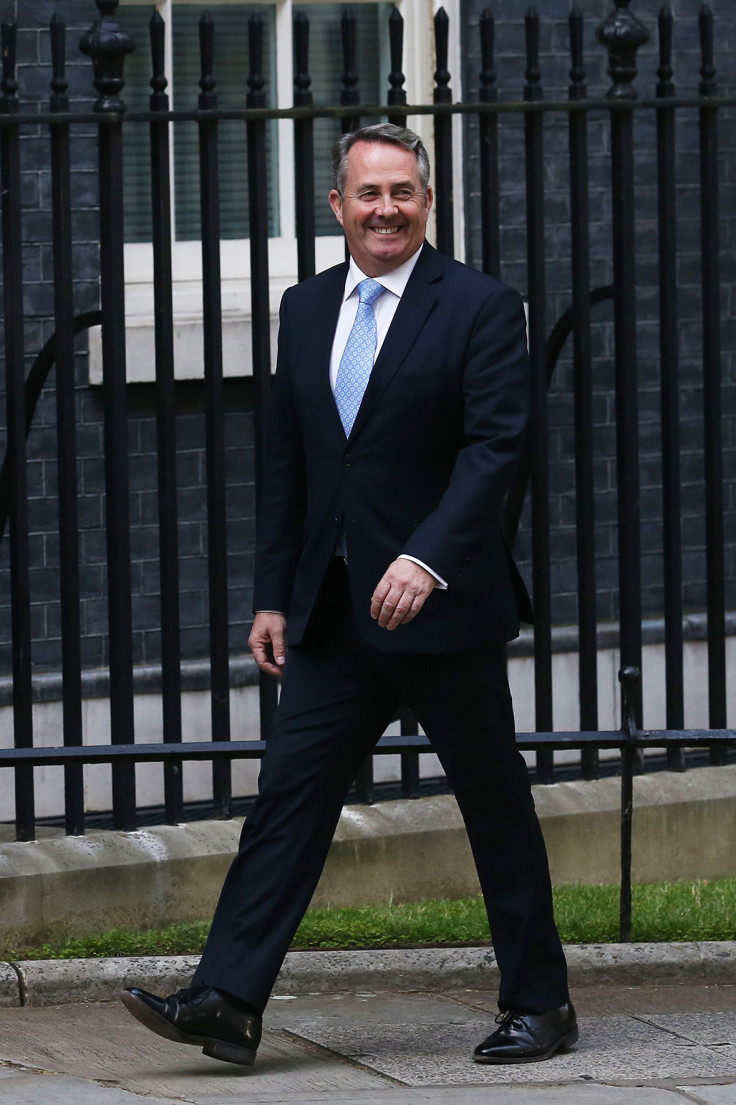Prime Minister Theresa May is in no mood to take blind corners at speed during Brexit talks
Key members of the government want Brexit as soon as possible, while the PM simply wants the best deal.
New prime minister Theresa May has made it very clear she believes "Brexit means Brexit". But, as with most political slogans, this raises more questions than it answers.
For Liam Fox, the new international trade secretary, Brexit means cutting deals two at a time.

Fox revealed he had held "very fruitful" talks with Canadian trade minister Chrystia Freeland last week.
Key nations such as China, India and Australia have all expressed an interest in starting trade talks with the UK.
Fox is due to fly to the US to meet the White House's most senior trade negotiator in the coming days.
He added he is "scoping about a dozen free-trade deals outside the EU to be ready for when we leave".
The staunch Leave campaigner has an equally formidable ally in David Davis, secretary for exiting the European Union.
Davis said he sees no reason why Britain shouldn't trigger article 50 of the Lisbon treaty this year – the formal process of leaving the EU. By his reckoning the UK could be ready to begin life outside the Brussels club from January 1 2019.
If it is this easy, what is holding the UK back from hammering out deals with the world's leading nations in short order?
Manpower, for one thing.
During its membership of the 28-nation bloc that spanned more than four decades, the UK delegated trade negotiations to the European Commission.
Lord Price, the minister for trade and investment, has said that the government has about 40 trade negotiators, compared with the 550 employed by the EU.
The government admits it will have to greatly expand its ranks of negotiators to cut just a handful of deals, which are known for being complex and lengthy.

The pace of the negotiations might also depend on what brand of Brexit the UK adopts. This ranges from a lighter Norwegian option, which has full access to single market but is obliged to accept the majority of EU laws, including the free movement of people, to the laissez faire models run by Singapore and Hong Kong, who follow a unilateral free trade approach, with no import or export tariffs at all.
"The next year or two will not be smooth," the former managing director of Waitrose Lord Price told IBTimes UK. "Cutting a trade deal is not as easy as people think, they cover about 15 different sectors.
"These agreements are complicated and take time. But the positive thing is that countries want to strike trade deals with us."
The general rule is these talks take time. Canada is close to drawing up a wide-ranging free trade deal with the EU, after seven years of bargaining. The US and the EU have been talking about an agreement since 2013.
Capital Economics senior global economist Andrew Kenningham agrees: "The leaders of the Leave campaign argued that, after Brexit, the British government would be able to strike more liberal trade agreements with governments outside Europe.
"This is possible, but it would probably take years for the UK to negotiate new trade agreements outside the EU's external tariffs after Brexit. Many of the agricultural subsidies and quotas are complex and would be disputed between the UK and EU, and with [the] other [163] World Trade Organisation members."
Some of Theresa May's key ministers are keen to make headway, but the Prime Minister has a reputation for being a cautious operator. She has already said she does not intend to start the formal process of leaving the EU until next year at the earliest.
She may be right. The government will have to think deeply about what kind of Brexit it wants, and then recruit hordes of specialist staff to make it happen.
Fox and Davis might fancy themselves as backseat drivers, but May is not the type who enjoys taking blind corners at speed.
© Copyright IBTimes 2024. All rights reserved.






